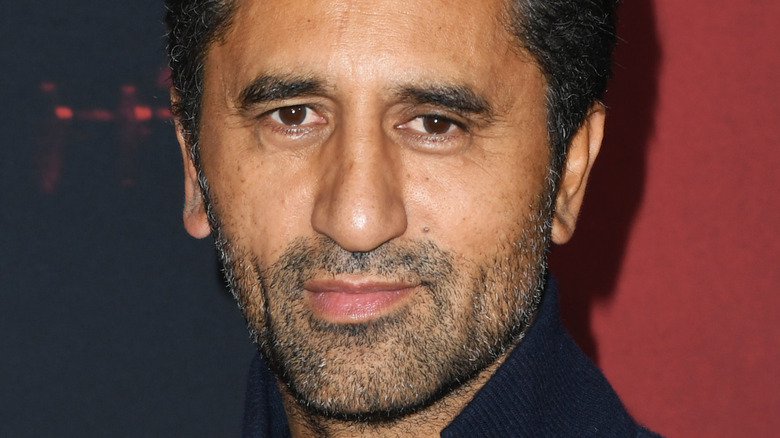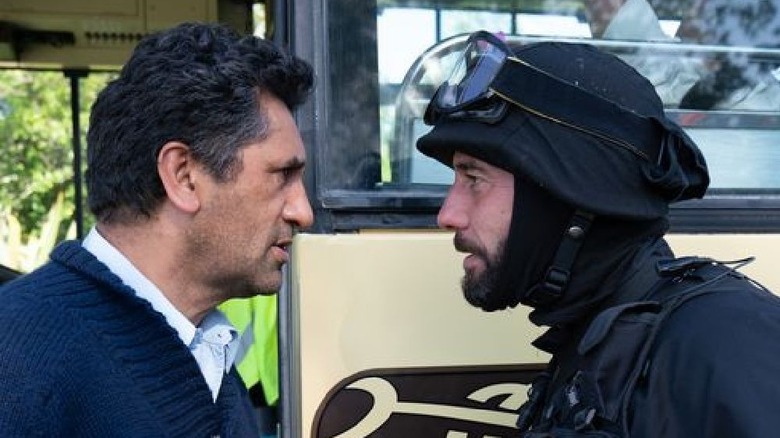Why It Was So Important For Cliff Curtis To Tell The Story Behind Muru - Exclusive
Premiering recently at the Toronto International Film Festival, the New Zealand-produced film "Muru" stars Cliff Curtis as Police Sergeant "Taffy" Tawharau, local law enforcement for a remote rural community, Ruatoki, that is largely home to members of the Indigenous Tūhoe nation. When Taffy discovers that an elite force of the national New Zealand Police is planning a series of raids against a local activist and others in the community that the government suspects of planning terrorist attacks, he is trapped between his loyalty to his people and his responsibility to the law.
Directed by Waikato nation filmmaker Tearepa Kahi, "Muru" is both a riveting social drama and a ticking suspense movie, featuring excellent performances from Curtis, Jay Ryan ("It: Chapter Two"), and Tame Iti, the real-life activist who plays himself in the film.
Yes, that's right: "Muru" is based on a real incident, a series of raids in October 2007 that ended in the arrests of 18 people, including Iti. Although only four individuals, Iti among them, were convicted of possessing firearms, the incident was a debacle for the New Zealand government and — to the country's Indigenous Maori tribes — a deeply hurtful and racist insult that has not been forgotten.
That's why Cliff Curtis says it was important for him to get involved in the film. "In this instance, [it's] trying to access some means of healing," he told Looper in an exclusive interview. "The first part of healing is being honest about who we are."
The raids that inspired Muru never should have happened
Cliff Curtis, a native New Zealander of Maori descent, says that the events that inspired "Muru" hit home for him. "It was about an hour away from where I live," he recalled. "They got it wrong. They profiled an individual, Tame Iti, and this group of people as domestic terrorists. It was a horrible mistake. But it wasn't just about that one day. That same thing happened nearly 100 years before in 1916, amidst a flu pandemic, actually."
The previous incident referenced by Curtis was the arrest of a Tūhoe activist named Rua Kenana, who attempted to extricate his people from colonial rule. The fact that a similar situation occurred 91 years later further fueled the filmmakers' goal to address the issues behind both occurrences.
"The movie is about ... wanting to tell stories of consequence, stories that matter, stories that can perhaps hope to examine who we are as a community, as a nation, as a people," said Curtis. "We got some issues. We got to figure this stuff out, because we don't want this to happen again."
While many people think of New Zealand as a beautiful, peaceful nation where movies like "The Lord of the Rings" and the upcoming "Avatar" sequels are filmed, the country also must contend with issues like racism and intolerance that haunt its history.
"It's not unique to us," said Curtis. "But we do have our own unique experience of it ... We have an aspiration that this failing within our community, within our nation, will not be repeated. It's been repeated already. Let's not go there again, please."
"Muru" has been officially submitted by New Zealand to the 2023 Academy Awards for Best International Feature Film (via Waatea News).

